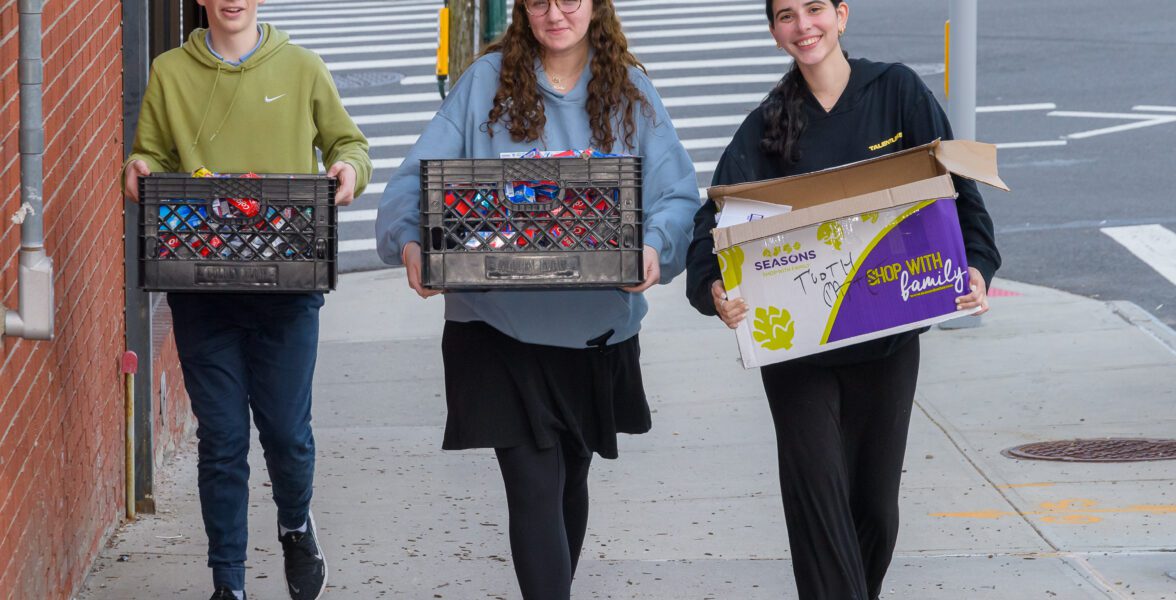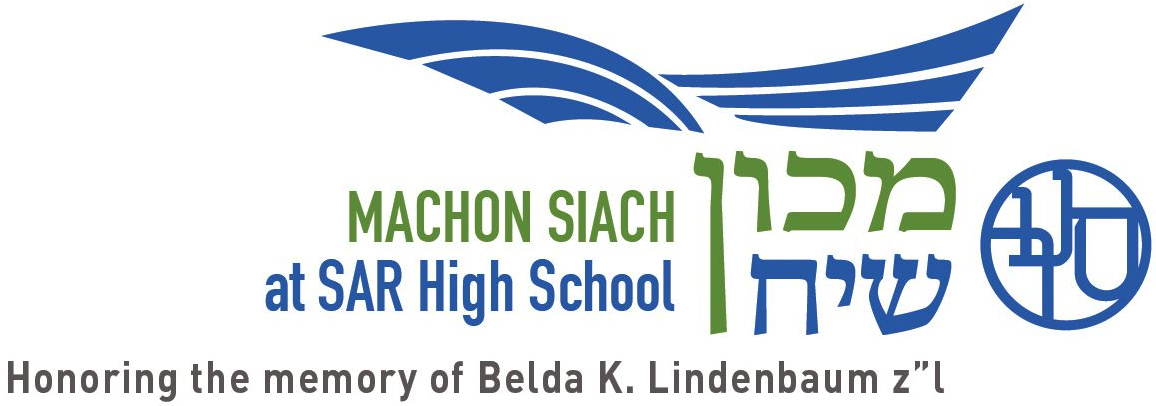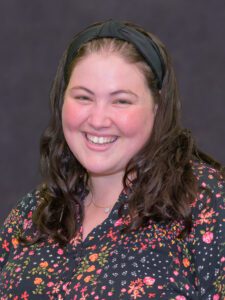
The Lifelong Value of Chesed
Picture yourself on a January Sunday morning at 8 am. The temperature outside is in the teens, and where do you want to be? Most people would say that they relish being in their warm homes, in bed, still asleep. It is a Sunday morning, after all! But, unlike many people, the students of SAR High School would say this is the perfect time for a Breakfast Run. Breakfast Run involves 20-25 students getting together monthly on Sunday mornings to go into Harlem, serve breakfast to those in need, and distribute toiletries, clothes, and other gear depending on the season.
The students work hard to make sure every donut, sweatshirt, hashbrown, stick of deodorant, and bottle of water is shared. If there’s extra food, they stop at the Friendly Fridge on the way back to school to ensure that every last thing can be donated to those in need. These students take the opportunity to step outside of their comfort zones – both physical and emotional – and truly give back to the broader New York City community.
Everyone agrees that chesed is an important value, but those of us who design and oversee SAR’s chesed programming constantly ask ourselves what we are doing to truly show students why chesed is important and enable them to contribute meaningfully. Unlike so many areas of students’ lives, chesed is not about what classes students take, what academic or athletic teams they are on, or their GPAs. We focus instead on showing our students that chesed is accessible to all and a value they can embrace throughout their lives.
Student interests and strengths are not “one size fits all,” so we try to provide opportunities for each student to find ways of doing chesed that are impactful for them. In addition to familiar chesed clubs and initiatives, we also have a unique programmatic position for students: our chesed council. Along with other, more traditional elected roles in student government, this group meets every Friday during lunch to plan more chesed opportunities in school, expanding and developing this central Jewish value.
The Chesed Department also initiated a chesed night once each semester when families, teachers, and students come together to participate in a wide range of activities, from a basketball tournament to support the Leukemia and Lymphoma Society; to letter-writing opportunities to reach out to families who lost soldiers in the Gaza war – with each family receiving as many as 50 letters; to cleaning SAR’s in-house food pantry for Pesach. Students are encouraged to find the most meaningful chesed for them and dedicate their night to it alongside their parents, siblings, and teachers.
SAR’s mission statement encourages us to “create a community of learners dedicated to probing and engaging the world with humility and openness to God’s creations.” Chesed helps our students achieve this goal by engaging with all of humanity, meeting people they might never otherwise encounter, as they do on Breakfast Runs. Especially in today’s troubled world, we are committed to building our students’ Jewish confidence so they can proudly contribute to the world by living out their Jewish values.
During Breakfast Run, for instance, students greet every person graciously with incredible warmth and endless smiles. We have many regulars with whom we build relationships, like James. On our most recent run, he wanted our students to walk away with a message he lives by: “today is beautiful, pay it forward.” Two other regulars who live in a nearby shelter are originally from Israel; they love our Breakfast Runs in particular because they can speak Hebrew with our students, and they regularly offer brachot to our students and praise them for their generosity.
At the same time, students retain and deepen their humility when raising funds or doing acts of kindness for people they don’t know and may never meet. Every Thursday, two SAR advisory groups convene at our food pantry, one to pack all the perishable foods and one to pack the non-perishables. Then, students and faculty anonymously deliver the boxes after school, helping people in need without receiving personal thanks from the recipients. This activity clarifies for them Rambam’s eight levels of charity, the second-highest of which involves “giving assistance in such a way that the giver and recipient are unknown to each other.” While this might initially feel less satisfying to students than Breakfast Run, where students are face to face with the recipients, it also helps them appreciate the value of anonymous giving.
SAR provides countless opportunities for students to get involved in chesed. We often use the tagline that SAR has “the nicest kids,” but we want students to think about what that phrase really means and see themselves growing into the best adults they can be. To achieve this modeling, we always invite our faculty and staff to join our chesed activities; when the students see their teachers and administrators taking time out of their busy lives to join them, they no longer think, “I’ll volunteer for Yachad or deliver for the food pantry while I’m in high school and then move on.” Instead, they see that chesed is a lifelong priority for our whole community. For example, one of our administrators joins us on every single Breakfast Run, and she beautifully models for students how to interact with the homeless people who visit our tables. Similarly, many of our teachers deliver boxes for SAR’s food pantry, and when students pick up their boxes for delivery, they see that the adults in their lives are also deeply committed to chesed.
By offering dozens of opportunities for daily acts of chesed, our students learn that chesed doesn’t need to be a massive project taken on only for a bar or bat mitzvah or fully interrupting their busy lives. We show students that chesed should be part of their everyday existence and can be achieved within their daled amot: in their local communities and on their regular paths. We help students find what speaks to them and plays to their strengths, recognizing that not every type of chesed is right for every person. One person might find meaning in working with individuals with special needs while another loves spending time with the elderly; one person might enjoy baking for Cookies for a Cause to raise money for the Bayit Association while another might want to volunteer at our twice-annual blood drive; some might want to be part of the weekly the bikkur cholim club, stocking and cleaning the apartments for patients’ families, while others might come together to organize Pink Day in support of Sharsheret. In this way, we aim to enact another principle of our mission statement: “recognizing the unique needs and potential of each individual by challenging each learner to move beyond his or her comfortable limits.” We see chesed as a focal value point in Jewish education, one that cannot be overlooked or relegated to a certain day of the week or year. Instead, our students constantly learn through service in every part of their lives, and we hope to instill that value in them for a lifetime.



